|
Parenting is a wild ride. For anyone who is a parent to small children, they can attest to the highs and lows that this responsibility can have. Children are full of joy and curiosity, they show the purest form of love, and they can be sweet and kind to others without fear or embarrassment. Children are also full of big feelings, strong wills, and lots of opinions without the ability to reason their way out of problems. It’s complicated and confusing. Even to the best-intentioned parents, it can feel overwhelming and stressful. Meanwhile, you experience the sweetest moments in between. My husband and I are parents to a 4 year-old that fits this description. We are trying and we are definitely getting it wrong sometimes, but we want what is best for little Vincent and we love him more than we knew we could.
There is a lot of noise out there about parenting, and everyone wants to give advice and share their best practices. Whether on social media, in endless books of how-to’s, or from relatives and friends, there seems to be a never-ending amount of information to sort through and try out. One way that I have taken a pause from this noise is by learning from the saints. I have looked up to so many for various things in my life – for personal reasons or in deepening my relationship with Christ. But now as a parent, I look to what I might call “the experts” who raised the mother of our Savior, Sts. Joachim and Anne. I have drawn a few relatable comparisons between these two people, who remain supportive and hopeful to the Holy Family. Saints Joachim and Anne are the patron saints of parenting and grandparents. Having been childless for the majority of their married life, the two continued to pray for God’s favor and have hope. While Joachim retreated for prayer far from home, Anne grievously prayed for her husband’s safety in exchange for dedicating any future child’s life in service to God’s plan. The two then shared a dream and vision where an angel told them that their fervent prayer had resulted in God choosing them to conceive a “wondrous” child. When Mary was born and became of age to be presented in the Temple, they brought her and followed the plan of God. There are parallels in their hope and dedication to faith that I have seen in so many parents I know and have met, and their faith is admirable and should be celebrated. Grandparents are special. My family is lucky enough to have grandparents actively a part of my son’s life. Whether in his day-to-day childcare or in the vacation weeks spent with them, my husband and I would not be the same without their care and love in our lives and in our son’s life. A lot can be learned in the witness that the previous generation brings to our current lives; for good, bad, or otherwise, these people raised us and taught us how to love and live. Now, it is fun to see how they adore and dote on their grandchildren in ways we never quite knew was possible. The whole family unit, then, is a masterful conglomeration of love, mistakes, trying things, and showing up. Imperfectly, and unconditionally. Not everyone has this experience; I am very aware of that. But for those of us that do, in whatever small way or mix of ways families can be, it is fearfully and wonderfully made. Saint Joachim and Saint Anne were faithful examples of the hardship that parents and grandparents can face. They suffered in ways we as parents similarly suffer, but they remained resolute in their fervent prayer and unshakeable love for God and for each other. Their daughter became the Virgin Mary, and their grandson became Christ himself. Although I recognize this is a little bold, we as Catholic parents cannot deny that our little rascals could one day become the saints of future generations who love and also remain faithful to Christ. Parents, pray for courage to love. Grandparents, pray for your children and grandchildren’s hope. Stay faithful and the Lord will see your love. A Parent’s Prayer from Loyola Press Loving God, You are the giver of all we possess, the source of all of our blessings. We thank and praise you. Thank you for the gift of our children. Help us to set boundaries for them, and yet encourage them to explore. Give us the strength and courage to treat each day as a fresh start. May our children come to know you, the one true God, and Jesus Christ, whom you have sent. May your Holy Spirit help them to grow in faith, hope, and love, so they may know peace, truth, and goodness. May their ears hear your voice. May their eyes see your presence in all things. May their lips proclaim your word. May their hearts be your dwelling place. May their hands do works of charity. May their feet walk in the way of Jesus Christ, your Son and our Lord. Amen.
0 Comments
Growing up in the 90’s meant a lot of time with family movie nights, being ridiculously goofy before social media was a thing, and quoting some classic cartoons. There is one that stands out: Peanuts. Some of the characters include Charlie Brown, Sally, Linus, Lucy, and, of course, there is Schroeder. Although those are some of my favorites, the cast was big and the movies and episodes covered a variety of topics and seasonal fun for all. We’d sometimes quote various parts (as one does) in our regular conversations, like when Charlie Brown says, “Good Grief” anytime he is dismayed, or when Sally asks for gifts for Christmas, “Just send money, how about 10s and 20s?” The music, written by Vincent Anthony Guaraldi, is catchy and helps tell a story, plus the character that plays the piano, Schroeder, provides the friends a chance to dance to the theme song. My brother learned that song when we were kids and he played it every single chance he had - just like his favorite character Schroeder. You see, Jon Kirby was the type of musical genius that, once he learned to play piano, could hear a song and teach himself to play it. He read music, saw music, and felt music, and Peanuts songs were some of his favorites to play. Later, when he began writing music of his own, he penned something so whimsical, that it required 21 hands to play it. Every pianist who had the honor of playing it told him how fun it was to play something so silly yet jazzy, and I am certain that was some homage to Guaraldi. Tragically, my brother passed away in November of 2023 from an unexpected heart condition, and I have been grieving his loss every day since then. I am coming to terms with accepting it more as time goes on and I am seeking help for healing, but it has been hard and sad and terrible to endure. Someone full of so much life to live, suddenly gone and taken.
Grief is a weird thing, it makes people act differently and no one quite knows how to do it “right.” Am I grieving enough? Is my grieving showy? Should I take time to spend on how I am feeling or do I keep pushing through? Do I talk about it or not talk about it? How can praying help and if it helps, how will I know? What is up and what is down, and why do people care about ridiculous things when my loved one is gone? These are all thoughts and feelings one might have, and when you peel away all these questions, it reveals the sad human who has been met with an atrocious reality. There has been a tragic loss and we are sad, angry, anxious, scared, heartbroken, and scarred from it. Our mind tries to make sense of it, but we cannot. Our hearts seek answers and we are often left without any. Our bodies are here while our focus is stuck on this tragic loss and it is hard to turn our fixated selves to other things. For me in this time of grief, I have been letting myself cry whenever I need to. I have been reaching out to family and friends to talk and share stories, but where do I go from here? A friend of mine Sarah Frances, who has had her share of grief in the past decade, lost both of her parents and still maintains a life of joy and fun and work and remembering. She is inspiring. I asked what advice she had for me and I thought her words were profound: “When you lose someone it is never the right time. But one of the greatest connections that we have to every single person is that we all go through this at some point and [someone] knows almost exactly what you are feeling.” She went on to say, “It does not matter if you lose someone you love, hate, tolerate, are related to…loss hurts, but you are not alone.” You are not alone. She is right that I am not alone, even if the pain feels like no one else could understand. Some people understand. I have been surrounded by so many loved ones and friends and acquaintances who have checked in and offered support. I have heard from people who I have never met, but who knew Jon. It’s been humbling and lovely, but painful and heartbreaking too. The community that has surrounded not just me, but my dad and my sisters, and his wife and her family, is just so full of love and I cry thinking about how grateful I am for all of it. The love from others is what got me through some days, like my husband who lets me just sob some nights and I know he will always hear me out when I am having a hard time with it, comforting me with a warm embrace. Even my little 4 year old has now experienced grief, and keeps me moving forward while remembering happy times. It is all hard, but it is good to have a village to go through it with. Isaiah 41:10 says, “So do not fear, for I am with you; do not be dismayed, for I am your God. I will strengthen you and help you; I will uphold you with my righteous right hand.” This connects it all for me. I have felt Christ in so many people. I feel strengthened in knowing that I am not alone in not only my grief, but my grieving journey, my faith journey, and the people walking alongside me in life. I am seeking God and finding God in the people and the kindness, and to me, this feels like “good grief” if that could be a thing. Life is hard. We can do it. Good grief! Courage and perseverance are two traits that I admire. The latter is a characteristic that not many people have, is hard to teach, and one that is imperative for success. In my classroom of 2nd graders, I try to remind them to “not give up, but try again and again.” When they become frustrated with challenging work or difficult friendships, they stop wanting to try again. They start to give up - but I tell them, “Keep trying!” and “Don’t be afraid to make a mistake!” Hopefully, one day my students will grow to recognize how courage can help them persevere through anything.
People who do extraordinary things should be recognized for their courage and conviction. Saint Catherine of Siena, whose feast day we celebrated yesterday, is a woman whose contributions to the Church, taking action in times of need and exceptional theological writings, sometimes can be overlooked. Born in Siena, Italy in 1347, Catherine spent her life doing the will of God. She began receiving visions and praying to God from a very early age, even seeing in one in which Christ reassured her with an armor of courage that could overcome anything that tempted or threatened her. St. Catherine lived her entire life in prayer and was named a Doctor of the Church by Pope Paul VI on October 4, 1970. She along with St. Teresa of Avila and St. Therese of Lisieux are the three women to have been bestowed with such a title. St. Catherine worked to return Pope Gregory XI to Rome, from Avignon France where the Papacy had been residing for 67 years. Her determination to see this mission through was a testament to her unwavering courage to do God’s will. In her many philosophical letters, prayers, and the Dialogue, St. Catherine reflected on four theological concepts with which she considered while in ecclesiastical mysticism. The first was a Treatise of Divine Providence, the second was a Treatise of Discretion, third was a Treatise of Prayer, and finally a Treatise of Obedience. Throughout her courageous writings, she discusses the goodness of a person’s knowledge of God and his unending love for his children living on earth. Because of this prayerful life she led, in 1375, St. Catherine was blessed with the Stigmata on her hands, feet, and side. Her wounds reflected those of Christ’s and were only visible to the naked eye upon her death in 1380 at the young age of thirty-three. Found incorrupt in 1430, St. Catherine is now buried under the altar of Santa Maria Sopra Minerva, in Rome and a sculpture of her body is on display there, too. Throughout the year, let us strive to be like St. Catherine of Siena and take courage and persevere. Unshaken by those who challenged and doubted her, she remained steadfast in her commitment to Christ, His Church, and His people. You don’t have to be a saint to follow God’s call to courageous witness, but prayer and perseverance can lead you toward holiness in Christ. **This blog was originally published on April 30, 2015.** **This photo is from: https://ourcatholicradio.org/blog/5-things-you-can-learn-st-catherine-siena** Lately, it has been a personal goal of mine to be outside more often. With spring upon us in the Washington, D.C. area, there have been many new and bright, shiny opportunities to enjoy the weather. My four-year-old is often my outdoor buddy, and we have enjoyed finding new parks, revisiting old ones, and looking for exciting ways to explore. We have had so many laughs and special moments while enjoying our little piece of the world that I sometimes get emotional thinking about how blessed I am and how wondrous the world is. It is humbling to consider how massive and stunning, yet how perfectly planned our Earth was made to be. In celebration of Earth Day on April 22nd, I have decided to focus on the beauty of nature through the adoring eyes of my son and reflect on how to instill more wonder and awe into my everyday “grown-up” life.
Who among us is yearning for connection? Just about everyone! As humans, we are built and intended to need other people, it is how God intended for us to be: communal people. The solar eclipse on April 8th brought so many of us in North America together, outside, to view a celestial event take place that has not happened in totality in a long time. The awe that took place, from people of all walks of life, backgrounds, beliefs, and cultures to view something so wondrous is humbling. The feeling of being part of something so much bigger than oneself is truly a holy experience for some; for others it was a chance to participate with those around them - a true shared experience. In Pope Francis’ 2015 encyclical letter, Laudato Si: Care for Our Common Home, he cautions us about the dangers of not caring for the Earth, reminds us that we are all interconnected, and provides steps to take in order to be a productive and intentional steward of the Earth we share. There are so many practical ways to care for the world around us, that even young children are often taught about recycling, waste, planting new growth, sustainable choices, and conservation of resources - all in an effort to better our common home. Whether it is my class of preschoolers or my own son, every day serves as a chance to teach and encourage our upcoming generations to do their part as members of our planet. As I close here, a prayer from Salt and Light titled, A Prayer for Our Environment from Pope Francis' Laudato Si', seems like a perfect synopsis of my reflection here on the wonder and awe of our Earth we share: All-powerful God, you are present in the whole universe and in the smallest of your creatures. You embrace with your tenderness all that exists. Pour out upon us the power of your love, that we may protect life and beauty. Fill us with peace, that we may live as brothers and sisters, harming no one. O God of the poor, help us to rescue the abandoned and forgotten of this earth, so precious in your eyes. Bring healing to our lives, that we may protect the world and not prey on it, that we may sow beauty, not pollution and destruction. Touch the hearts of those who look only for gain at the expense of the poor and the earth. Teach us to discover the worth of each thing, to be filled with awe and contemplation, to recognize that we are profoundly united with every creature as we journey towards your infinite light. We thank you for being with us each day. Encourage us, we pray, in our struggle for justice, love and peace. Amen. Holy Week is one of my favorite weeks of the year; each of the days builds with anticipation and I get excited just by the thought of Easter Sunday. Lent is almost through and it’s almost time to be joyful in the Risen Lord. When I was little, I felt this anticipation and excitement too. I would spend Holy Week letting people know that Easter was only a couple short days away—it felt like spring would officially be here as soon as we woke up on Easter Sunday! “The very best holiday of the year” was coming, and I had to get ready for it! Did I fully understand it was Christ that I was waiting for or did I just want to wear my new white shoes for church? Looking back, although it could have been the new Easter shoes, I think my 10 year-old-self would have agreed that I really was waiting for Holy Week as the final stretch to the finish line on a journey that began on Ash Wednesday.
In today’s Gospel reading, we read about moments of betrayal and loyalty. Judas leaves the Last Supper to betray Jesus while Peter in his humanity says that he will never deny him. I find it to be one of the most powerful Gospels of Holy Week. Here’s why: Like Peter, we are called to be disciples whose repentance leads to an experience of God’s forgiveness. Jesus knows that his friends will betray him and that he has limited time left on Earth. On one hand, Judas tries not to be obvious about his deception as he leaves the table, and on the other hand, Peter publicly tells Christ that he will stand by him and never fail him. Ultimately, both men betray Jesus, but it’s Peter who seeks forgiveness and allows himself a second chance. Judas, on the other hand, is overcome with guilt and despairs that his sin is beyond the reach of God’s mercy-- eventually taking his own life. We are like Peter in so many ways! We say we love Christ and that we could never deny him, but at the first sign of pressure we sin and turn our backs on him. How often have we chosen to do something that pulls our hearts from Jesus? It is during Lent—especially during Holy Week—that we recall the pain we’ve caused Christ. This week and each day, Jesus gives us another chance to say to him, “Forgive me; I have sinned.” When Christ meets his disciples after his Resurrection, he asks Peter, “Do you love me?” Let us respond with Peter this Easter, “Yes Lord, you know that I love you!” As Easter approaches, we remember how much we are loved by Christ in his Passion, death on the Cross, and soon to be Resurrection. In these next few days, I challenge you not to say, “Lord I could never deny you!” but instead, “Forgive me Lord, for I have sinned.” Last year on Good Friday, Pope Francis said, “Lord Jesus, always grant us the grace of holy repentance...the spark of hope is lit in the darkness of our despair, because we know that your only measure for loving us is to love us without measure.” This Holy Week, in this time for “holy repentance,” let us make sure to spend these last days in Lent with our hearts preparing for Easter. May we use these remaining days in the desert as a time for forgiveness and allow our hearts to be loved by Christ. May all of our hearts gleam with anticipation for Holy Week and better knowledge of the Risen Lord! **This blog was originally published on April 16, 2019.** Mothers come in all shapes, sizes, colors, temperaments, sanities, and the list goes on and on. To be brutally honest, my mother and I are not close and our relationship is painful and strained. I’ve never pretended that things were good; I’ve always been mature enough to know that she wasn’t a healthy person to be around, and I’m the person I am today because of her and how she raised me. I’ve gotten my best and worst traits from her, and although I’ve tried my whole life to be something entirely different from her, I once in a while find myself saying the same kind of mom phrases she used to use. It’s taken me a lifetime of prayer and healing, but I’m a stronger, more resilient person thanks to her. One thing she did instill in me is a foundation in my Catholic faith. And although I discovered my relationship with God and my faith life for myself later in high school, she was the one making sure Christ was at the center of my life. Moms and mother figures are good like that; many center us on faith and give us some moral compass to live by.
Fast forward to three years ago, when I became a mother myself. My eyes were opened to the incredible highs and lows that come with a newborn. Then he grew into a toddler, and now he’s a fully operational human boy with thoughts and feelings and opinions of his own. Vincent is only three, but seeing life through his eyes and being his mom is the very best feeling I could have ever asked for. My whole perspective on what being a parent means and how I do that on a daily basis has filled my whole being at times. It’s wild to think that I’m a mom sometimes, and I wonder how many others pause to consider that too. From the moment of conception, we’re caring for and nourishing a human person within us. We were designed exactly as God intended: to be able to do this and withstand the pain and changes that not only our bodies go through but also our minds and hearts as well. God has a plan and motherhood is part of so many of our journeys in life. Even from a preschool teacher perspective, I never quite knew how it would feel to have a child of my own to raise and nurture and be able to introduce to God. This happens at dinner when we say Grace together; he knows the Sign of the Cross and has learned the prayer. This happens at church on Sundays when we talk about the colors, the statues, and the Cross. Vinny asks about the bells and knows how to say “Peace” when it’s time to share in the Sign of Peace. He knows that when it’s “our turn,” we can walk up the aisle for something extra special in the Eucharist. Just this past Sunday, he began to venture past the priest and onto the altar…which made the bishop (of course) burst into laughter. Mortified, I brought him back to our spot and hugged him so tight, knowing he will only be this little for a short time and that one day he might even find himself on the altar as a priest. God has a plan; meanwhile, we just wait and see what happens. Moms suffer the greatest heartaches, the greatest of joys, and everything imaginable in between. This Mother’s Day, let’s give each other grace. Moms nowadays are inundated with information and opinions and media and choices and advice, and we’re thrown into doing so much with very little help sometimes. Let’s say a little prayer for each other for strength, courage, and patience. Mary, Jesus’ mother and the greatest of all models to look up to when getting through our day-to-day life, is someone we can turn to and ask for intercession. Our Blessed Mother, even in her perfection, still somehow experienced similar feelings to those that we feel as mothers. I’d like to think that because Mary and so many other women were great mothers, I can be too. Finally, join me in praying a rosary for mothers. God loves all of his children; it’s our job to meet our sisters and brothers on this life’s mission and be an apostle to them on the road. As you pray these prayers, take a moment in your humility; put aside anger, resentment, stress, and distractions. On each bead, pray for a mother you know by name or someone you’ve never met. Consider praying for… …the mother who is anxious. …the mother who has suffered loss of a child(ren). …the mother who is estranged from her own mother. …the single mother. …the mother who feels alone in her motherhood. …the mother who has had miscarriage(s). …the mother who is scared. …the mother who is experiencing homelessness. …the mother who is in an abusive relationship. …the mother who has had an abortion. …the mother who has healthy children. …the mother who is sad. …the step-mother. …the mother who is worried. …the mother who is the breadwinner. …the mother who has addictions. …the mother who forgets about her own self-worth. …the mother who is struggling. …the mother who is without faith. …the mother who is doubting herself. …the newly-pregnant mother. …the mother who is working. …the mother who stays at home. …every mother. How does one “prepare for Lent” in our current world? How might you quiet your life for forty days and be as if in the desert with Christ? What could Lenten preparations look like? These are the questions I considered as I began this reflection. As a mom, wife, teacher, and Catholic woman in today’s world, my life is hectic and my focus is often driven by the next prioritized event or deadline. If we’re being honest, I don’t have forty days to be consumed by a literal or figurative desert for prayer and quiet. But is that just the kind of reasoning that society is telling me? Where do I find God in the noise?
To more easily consider Lent this year, I broke it down into four categories of my life. This Lent as a mom, I want to cherish the little joyful moments. My son is now three, and other parents may understand when I say that sometimes three is exciting and adorable, but other times it’s exhausting and I count down the minutes until bedtime. Children are the most wonderful blessing, but they are so much work too. I want to be playful with Vincent this Lent, I want to do less complaining or rushing him through things, and I want to cherish the little joyful moments. This Lent as a wife, I want to be in solidarity with my husband as we try our best to support each other with Lenten sacrifices. For me, indulgence is an area where I want to work on sacrificing until Easter. It will be challenging, but it’s easier when you have someone beside you, helping you stick to a goal or a plan, and I know we can do this for each other. Forty days is a good time to get into better habits together and put our best feet forward for the Easter season. This Lent as an educator, I want to intentionally pray for each of my students and their families. Having moved to teaching at a new school this year, I have new students and a new environment where I can share with children how precious they are. Although I’m not at a Catholic school, I can still treat each of my nineteen students with intention and consider them and their families throughout Lent. This Lent as a Catholic woman, I want to add on quiet. This, for me, will look like turning off the radio for one whole commute to or from work a few times a week. During that time, I’ll sit with God and reflect: consider my actions, my gratitude, and my intentions for my day or my evening. I’ll try to avoid just picking up the phone to call someone and complain about a bad day or listening to music to drown out the day. I want to add on quiet. Thinking back to my first questions, I still am going to find it difficult to be in quiet with God and not just find time but MAKE time for Christ. I really think that’s the difference: when we only have moments here and there to give, we’re not at peace. When we make time for Christ—schedule it into a calendar or create a time of the day for just us and God—we will feel and find his blessings that much more easily. My challenge for you is to schedule time for God each week in Lent. Priorities will still be important and life will still be hectic and busy, but we can only sit with Christ in the desert for forty days. I wouldn’t want to miss that for anything in the world. My scheduled times with God for the next forty days will be: Tuesdays on my ride home from work, Saturday mornings for a few minutes before everyone is awake, Friday mornings on my way into work, and Sundays during the Gospel and homily when I can think and reflect on the Word in Scripture. I know I can achieve these four times each week, and I know it’s not too much for my to-do list. I’ve even added them to my calendar so I can’t forget. We’re exhausted; Christ was too. We’re weary and burnt out; Jesus’ apostles were too. We’re calling out to our Heavenly Father, “Why have you forsaken me?” as Christ did (Mt 27:46). All you have to do is make time and be open. I’ve lost a lot of things in my life, and while sometimes those things eventually are found, other times I never see them again. I often put something aside for safekeeping, and then when I’m looking for it, the item is nowhere to be found. I usually just blame my ADHD, but when it’s really difficult to find something and I just cannot locate it anywhere, I do what others also may do, and I ask St. Anthony to help me find it. Ever since I was little, we were told, “Say a prayer; St. Anthony will help you find it,” and usually the item showed up soon after the search party hit full speed. So as I was preparing for this reflection, I learned a lot about who St. Anthony was, why he’s the patron saint of lost things, and how we can find what’s missing in our lives in this new year.
Anthony was born in 1195, just thirteen years after St. Francis, in Portugal. Anthony was baptized with the name Fernando, and at the age of fifteen, having lived with his wealthy family up to that point, he left home and entered religious life in order to join the order of St. Augustine. Fernando, however, had a hard time adjusting to his new life. His friends visited frequently, and his time there was anything but peaceful and studious. After only two years, he was sent away for nine years to study Augustinian theology and become a priest. Fernando didn’t remain an Augustinian, however. He requested and was given permission to join the Franciscans after witnessing Franciscan martyrs of Portugal give all they had to preaching the Gospel. He received the name Anthony and left for Morocco, but he was blown off course and landed in Sicily. While in Italy, Anthony amazed people with his sermons and preaching, because he spoke in a way that connected with the people. Anthony became a teacher and taught other friars theology, and he was known to the people for going out to larger spaces so more people could hear him preach. He wrote volumes of sermons called Sunday Sermons and Feast Day Sermons that used allegory and simplistic pictorial expression, perfect for relating to the community he served. Just before his death, Anthony left for Padua, a place that was a central player in the study of law, and he was well received there. He died at the age of thirty-six, having been a Franciscan friar for ten years. Many traditions have been associated with St. Anthony, especially in relation to his ability to help people find missing things. It is said that Anthony’s own book of psalms was stolen by a thief, but Anthony prayed to God that it would be found. The thief’s heart changed, and the psalter was returned to him, still intact with his notes for his students. Word spread of this miracle, and soon, others also began praying to God through Anthony for their missing things. Another tradition is called St. Anthony Bread. After someone’s prayer has been answered, and they’ve found their missing item, they present St. Anthony with a loaf of bread in thanksgiving for the small miracle. In many places, on the feast of St. Anthony, small loaves of bread are still blessed and given to the poor. St. Anthony of Padua has been characterized as a humble and positive man, a man of incredible penance and zeal, full of courage to preach, and considered a “man of the people.” His preaching was regarded so highly that he was made a Doctor of the Church in 1946 by Pope Pius XII. The Church particularly urges us to imitate Anthony’s “love of the word of God and his prayerful efforts to understand and apply it to the situations of everyday life”, found here. In some ways, his ability to meet his fellow apostles in their own faith journeys reminds me of St. Vincent Pallotti, a priest who was another humble saint who preached and served in the many streets of Rome. Pallotti’s life was dedicated to accompanying the faithful and helping them live out the Gospel in their everyday lives. He once said, “What God demands of you is love, gratitude, and cooperation,” and I think St. Anthony would agree with him on that. In this new year, let us put on the life of Christ as St. Anthony did. Let us share the Gospel with others simply by being a witness to the love we feel in Christ. Our message and our actions can feel lost in the hustle and bustle. We can lose ourselves in the busyness and in the daily tasks, but in 2023, let’s really take notice of what’s missing in our lives and pray that St. Anthony’s intercession can help us find anything we’ve lost. Information from this post on Anthony’s life can be found here at: https://www.stanthony.org/who-st-anthony/ Visit our Feast Day Site to find more information about Saint Anthony, too! https://www.catholicapostolatecenterfeastdays.org/feast-days-and-solemnities/st-anthony-of-padua
I’d like to use this opportunity to talk a bit about my husband, who may be wildly embarrassed that I’m using him as my muse for this post. My husband works hard. He is a very predictable man, sure of himself, and resolute in his decisions. He uses humor to make light of situations and balances out my whimsical optimism with his reality-based thinking most days. But an admirable quality that he’s had since before we met is that he has an intrinsic motivation toward duty. He is a man of purpose. I love him for it all and am proud of all he’s done in service to others. Plus, I’m certain I don’t tell him that enough. So here it is, publicly acknowledged and acclaimed!
When I reflect on the men I know, I often see a sense of duty and purpose driving many of their decisions and commitments. Not only men are often dutiful, but many take pride in what they do. I’d like to reflect on this sense of purpose through the lens of the saints and Scripture. We find men of God in Scripture who did great things and were called for a purpose like Abraham and Saul. We find holy men among the saints who were called to a sense of duty like St. Peter and Blessed Father Michael McGivney. These men were each very different, lived at different times, and were challenged by God in different ways. Each one was called with a duty to serve and be faithful, too. They were men of purpose. We know the stories from the Old Testament about Abraham and how he was chosen by God to be the “Father of Many Nations,” how he was blessed in his old age with a child, and how he was faithful to the point of sacrificing his son. God chose him to make a covenant with, and he will forever be remembered for his steadfast obedience to the Lord. We also know the story of Saul, who persecuted Christians, endorsing stoning and doing terrible things in God’s name. Then one day, a bright light knocked him down and he was blind until he converted and believed in Christ. On that day, his name was changed to Paul, and he became a missionary who traveled all over bringing with him the Word of God. Both men were called by God and were given a purpose. There are two other holy men I’d like to consider as well, the first being St. Peter. I like to think about his example because every time I read about Peter in Scripture, he seems to lack purpose until Jesus speaks to him. At the Transfiguration, Peter’s first thought is “let’s build tents” when he sees Moses and Elijah with the Lord and he hears God’s voice in a cloud that says, “This is my Son…Listen to Him!” (Matthew 17: 1-9). Later, in the Garden of Gethsemane when Jesus is arrested, Peter acts on impulse and cuts off the ear of a servant until Christ tells him, ‘Put your sword away!” (John 18:10). Throughout the Gospels, Peter seems so relatable. Although well-intentioned, he often says or does things out of turn. It is after the Resurrection when Jesus forgives him and tells him to, “Feed My Lambs…Tend My Sheep…Feed My Sheep” (John 21: 15-17), that he is entrusted to be the first pope with the help of the Holy Spirit. He was taught by and learned from Jesus, and now he is ready to be the leader he was intended to be. Jesus gave purpose. The fourth man of purpose I’d like to consider has a bit of significance to our family: Blessed Father Michael McGivney. Fr. McGivney was born in Waterbury, CT in 1852 and grew up in an immigrant Catholic household. Later, he became a seminarian and then a beloved parish priest at St. Mary’s in New Haven where he walked with people in their daily lives. A man of purpose himself, he recognized the hardworking men in his community and started the Knights of Columbus in 1882 as a fraternal organization of Catholic men. He knew that, united in faith, these Catholic men could be invigorated to help their communities and the order grew. Fast forward over a century, and lay men both young and old are still pining for purpose and the Knights of Columbus has provided that for so many. Most importantly in my life, my husband has found faith, fraternity, and unity in his work through this organization and I’m proud that he’s found such a calling for service as a Knight. Blessed Father Michael McGivney provided him and countless other men with purpose. At a time when so many things seem to be challenging our Catholic faith, there are ways we can keep on persevering and people who we can rely on for help. Look to those who are resolute. Look to the ones who have never wavered, to those with faith. Faith provides this duty and purpose. It comes out in a variety of ways, as shown in the examples of the many men I’ve reflected on here. We all are looking for purpose--whether it’s a small child finding purpose in helping around the house or a new member of the Knights of Columbus hoping to find purpose in fraternity and service. I challenge you to reflect on the examples of men of purpose I shared and consider what Christ is asking of you today. Where do you find purpose? “Be a Person for Others” - St. Ignatius of Loyola. “Seek God and you will find God. Seek God in all things and you will find God in all things. Seek God always and you will find God always.” - St. Vincent Pallotti And the greatest purpose of all: “Love one another as I have loved you.” (John 15:12)
I have a new hot-take: Jesus is a perfect definition of bittersweetness. This might leave some to continue scrolling down the page, but hang on. For me, I need to connect to my faith in a tangible and simple way. When you think of something like the Paschal Mystery, it’s a little daunting. To explain some more, let’s break down this little claim of mine and engage with the Paschal Mystery a bit. We know that Jesus’ Passion, death on the Cross, rising from the dead, and new life are all aspects of the core of what we believe as Catholics. The bittersweet aspect is that it was both sad and amazing at the same time. Recently, we saw how Jesus’ Passion and Resurrection, followed by his Ascension, made his disciples miss him. But, the Holy Spirit empowered them to do great things! At points of transition in our lives, even as natural as the change of seasons, we may find ourselves with feelings of similar bittersweetness.
As my life gets pretty chaotic this summer, I’m finding myself constantly split between being sad and happy or experiencing the closing and opening of chapters. I’ll be saying a fond farewell to an aspect of my career that feels like the sun setting, but there is hope of new and exciting horizons that lie ahead. As a parent, I’m grieving the baby phase that my two-and-a-half-year-old is through and gaze at his baby chub that was so squishy, when he couldn’t run fast. On the other hand, I’m loving the chatting and curiosity that his toddler age has brought to our lives and I can’t stop laughing and smiling with him lately! Also in my personal life, my husband and I are coming up on our 5th wedding anniversary this fall, and I cannot help but wonder how fast the time has flown by while loving how much we’ve grown and supported each other over these years. In all of these areas, the word I keep thinking is not bittersweet—that sounds like a tasty chocolate. It’s bittersweetness. The word for my summer is bittersweetness. I think I like the sound of it better than the type of chocolate because of the “sweetness” part. I like the sweetness in things, the joy and the happiness. I tend to skip right through the sad or longing because if I dwell on these too long, I’ll get that tightening in my throat and catch a tear in my eye. I don’t like goodbyes and I don’t like endings. I always think of the glass half-full. For example, I tell my students, “Jesus died, but three days later he rose from the dead and saved us all.” The bittersweetness of life for me always looks optimistic and emphasizes the sweetness, not the bitterness. But life is full of both, so I’m trying to push through and feel all the feels this time. In this literal new season of summer and this transition of seasons in my life, I need this reminder to not skip the goodbyes and try to go straight to the good part. I think this summer will be hard for me in this season, so turning to prayer and God’s grace will ease that burden a bit. I’ve always found comfort in prayer, whether it is an intentional Mass or journaling some thoughts. I’m hoping to re-acclimate my heart for those things too. For at-my-fingertips-access though, I am also going to attempt to make the Revive and Rekindle App through the Catholic Apostolate Center a daily habit. I’ll first begin with the daily reflections and see what my heart needs next. I need to reflect and think about Christ, and I really enjoy doing so through the lens of Pallottine spirituality. I find comfort in the words of St. Vincet Pallotti: “Seek God and you will find God. Seek God in all things and you will find God in all things. Seek God always and you will find God always.” He reminds us to simply look for the Lord. I’m hoping this “seeking,” will bring some comfort for me and for you! Through Christ, this bittersweetness may open my eyes to new things or help me feel at peace with both emotions, embracing the bittersweetness together! Prayer will get me through. Lord, give me strength and understanding. Amen. Fairly recently, we taught my son to say grace before meals. He contributes by saying, “Amen” and folding his hands. My husband patiently encourages him to keep them folded and he knows we pray before he eats. He even got his Grandma to say “Amen” when they’re together. It’s the sweetest thing and fills my heart with hope. Saying, “Amen” got me thinking though: What a perfect word to carry my family through Lent this year!
Think about it: what do we say to begin and end prayer? Amen. The Creed, the Our Father, the Hail Mary, our spontaneous prayers–every prayer ends with Amen. The faithful participate in the Great Amen in the Eucharistic liturgy at Mass, As the USCCB explains, “The Eucharistic Prayer concludes with the Final Doxology…The people respond with the Great Amen a joyous affirmation of their faith and participation in this great sacrifice of praise.” What exactly does “Amen” mean though? The Catechism elaborates when discussing the Creed, “In Hebrew, amen comes from the same root as the word ‘believe’...Amen expresses both God’s faithfulness towards us and our trust in him.” (CCC 1062). This seems pretty powerful for a Lenten reflection on God’s love and mercy. God’s faithfulness endures. By responding with Amen, we acknowledge this faithfulness and express our trust in him. The section goes on to say, “To believe is to say ‘Amen’ to God’s words, promises, and commandments; to entrust oneself completely to him who is the ‘Amen’ of infinite love and perfect faithfulness” (CCC 1064). When we say Amen, we are saying “I believe” –a beautiful reiteration of our Baptismal vows. I believe. Amen. I believe. I’m certain my two-year-old son already sees God in so many things. Already, he has many opportunities to acknowledge God’s faithfulness: After grace when he says Amen, at Mass when he closely watches the priest lift the host in consecration, and at bedtime when he says goodnight to Jesus. And through my son and his budding faith, I also see God. My son’s namesake, St. Vincent Pallotti, spoke about finding God when he said, “Seek God and you will find God. Seek God in all things and you will find God in all things. Seek God always and you will always find God.” This is such a practical application of big concepts in our understanding of God, perfect for a child to consider as he grows in faith and as we accompany his journey in life. “Seek God always and you will always find God” is also a great phrase to take to prayer this Lent. I think it will continue to help shape my prayer during this season of reflection. As we continue throughout Lent, consider these different aspects of our faith. Every time you say Amen, I invite you to reflect on who you are saying it to and what you believe. May you more earnestly seek God, find God, and trust in his faithfulness throughout your life and during this time of prayer, fasting, and almsgiving. Lent can be a powerful season for us, fortifying our hearts with Christ at the center. As Vinny learns more about prayer, I hope that I can continue to teach him about our Faith, the faithfulness of God, and how to “Seek God” in order to find him. Amen, I believe. Catholic Church. Catechism of the Catholic Church. 2nd ed. Washington, DC: United States Catholic Conference, 2011. http://www.usccb.org/beliefs-and-teachings/what-webelieve/catechism/catechism-of-the-catholic-church/epub/index.cfm The best thing about being a parent is finding joy in the moments that your child is laughing, playing, and having fun. It’s joyous and fulfilling; and there is no greater feeling. There are other times when parenting is hard--full of so many sacrifices and tough decisions that make it feel like the farthest thing from a perfect scenario. My toddler is two years old and pretty expressive about what he wants and needs. His favorite phrases right now are: “I want fruit snacks” and “New truck show.” Depending on the answer to his requests, he’s either overjoyed or devastated. He will curl into a ball with his head on the floor at my feet or just burst out into a shrieking scream of anger. I think for most parents, it’s hard to see your child struggle. While it’s important for him to learn lessons like “not-right-now,” teaching him and working through these times of struggle are not fun parts of the vocation. I’d like to think that God, our very compassionate, perfect Father, watches over us in our many struggles and is the kind of parent beside us in our tantrums, too. The weight of parenthood doesn’t affect our Father. Instead, he is the one who strengthens us, the stressed-out parents, when we ask for his help in prayer and let him in.
Jesus is the Son of the Father. When he taught his disciples to pray, he gave us the Our Father prayer. In each of these lines, we can find solace in praying to our Father in heaven. There is such beauty in the words from Christ that capture every essence of our Gospel. Our Father, Who art in heaven, Hallowed be Thy Name. Thy Kingdom come. Thy Will be done, on earth as it is in Heaven. Give us this day our daily bread. And forgive us our trespasses, as we forgive those who trespass against us. And lead us not into temptation, but deliver us from evil. Amen. Let’s go through the prayer and break it down a little more:
By the end of the Lord’s Prayer, I see a loving, forgiving, and omnipotent parent. I feel like God is supporting me and guiding me. He is inviting me to have faith in what he wants for me and my life. The Our Father also reminds me to be grateful each day, to forgive others, and to allow myself to be forgiven, most importantly in Confession. A parent’s life is sometimes consumed by their child or children. With God’s help, we can live out our vocations as parents by looking to his example of Fatherhood. God in His Wisdom created us to be His. He made us unique, with a capacity to love and with Free Will. He made us to be thinkers and creators. He loves us so much that he brought his Son into the world to die for our sins and then be able to live with him eternally. I can’t imagine a more perfect parent than that. This Advent is very special for three reasons. First, my son, who will be two in January, will be experiencing the lights, the beauty, and the gift of Advent in a brand new way this season and I’m so happy to share that with him. The second is because every year I teach about Advent to my class of PreK students, but because I’m really looking forward to it, I think I’ll be able to bring that joy into the classroom with me more than ever. Finally, this year in Advent I will be trying to intentionally do work in the service of others and helping where there is an imperative need. This year, I’m hoping to get caught up in the magic and in the giving and also appreciate the beauty of the season rather than waiting impatiently.
On the first Sunday of Advent, I went to Mass with my son and husband, along with another family with two young children. For the first half, my toddler was overwhelmed with excitement about the tree in the back filled with tags for people who need wrapped gifts for Christmas. He kept taking the tags off and swapping out one for another, screaming in joy about the whole thing while the congregation listened to the readings. After some quieting down, we went back into the pew with his little friends. As we knelt in prayer, I was overcome with emotion and gratitude between my husband and son. But the moment that really helped me see through the eyes of a child was when we walked up for Eucharist and my son noticed the purple at the altar, and the four candles with one purple one lit. He pointed and said, “Candle!” and in that moment I knew we would have such a joyful season of Advent. I invite you to notice something brand new about the lights, beauty, and hope that Advent brings to us all. Hope, Peace, Joy, and Love are the four weeks that bring us closer to Christ and prepare us for His coming. We can use this time to reawaken our hearts and see Advent all fresh and new, especially through the gentle ways of children! In my PreK classroom, the children love holidays and especially look forward to Christmas. So many learn about Christmas and Advent for the first time in my class, and that is a really special opportunity for me as their teacher. Already this year, one student shouted, “Presents!” as we were talking about Thanksgiving, and I had to clarify the confusion between the holidays. Then, it struck me, isn’t that how it works sometimes? We want to skip right to something fun that might be in the more distant future instead of appreciating the celebration that might be happening right in front of us. Advent is this same phenomenon. We’re worried, anticipating, and anxious about one day every year, but if you consider that every day in Advent can be a celebration of the Season, it’s really like we have a whole month of Christmas! There is so much we can do for others in this challenging world right now and there are many in need of our help. Winter is cold and this year has already been chilly: there is a lot we can do for our Sisters and Brothers in Christ during Advent by sharing in joy, distributing resources, praying for those sick or in need, or offering kindness. In 2018, Pope Francis said, “Advent invites us to a commitment to vigilance, looking beyond ourselves, expanding our mind and heart in order to open ourselves up to the needs of people, of brothers and sisters, and to the desire for a new world." Advent is a time for service, here are some examples of helping others during this time of giving:
Whether you look at Advent through a child-like perspective, find joy in the daily celebration, or assist those less fortunate this Season, do it all with intentional preparation for Christ’s coming on Christmas. I’ll be busy getting caught up in the magic and beauty too! Happy Advent! Click here for more resources on Advent. Click here for more resources on the Works of Mercy. As the mother of a young toddler, I’ve found that life is moving pretty quickly. One moment I’m running after him so he doesn’t grab the dog’s water bowl, and the next, I’m reading his little children’s Bible for the third time in 5 minutes. I’m finding that my toddler is learning so much from his environment. Every day, he can say new words or hum or sing or dance. When I hear him say, “Mama and Vinny,” I just stop and think about Mary.
I love to imagine her as Jesus’ mother: patient and loving, giving hugs, teaching him and walking among flowers. I picture the two of them laughing and playing in the sunshine filled with joy. But I also imagine her with Jesus throughout his life. I start by thinking of Jesus as a toddler--maybe when they were still in Egypt. He likely picked up sand and tried to eat it like my little one would or looked at a camel or water and began to say his first words. Then, I can imagine Mary and Joseph both searching for Jesus while he was not where they thought he should be, but instead in the Temple with teachers showing how much he knew about Scripture. She would be proud of him and his knowledge, maybe with a pang of understanding of his purpose on earth. Then I imagine later on in his first miracle at the wedding at Cana, when she really knew it was time for Jesus to begin his ministry. She supported her son, but also knew it was time to begin God’s work. Meditating on different Scripture passages and moments in the life of Christ can deepen our relationship not only with him, but with the many powerful witnesses to the faith like Our Blessed Mother. Reflecting on moments with my toddler and my own motherhood has strengthened my relationship with Mary over this past year. In this month of May, let us turn to Christ’s Mother and celebrate her motherhood to all of us. Mense Maio, an encyclical by Pope Paul VI which came out on April 29th, 1965 discusses prayer during May for the preservation of peace and the powerful intercession of our Blessed Mother in a variety of ways. As I was reading, I liked how Pope Paul VI mentioned different areas that need our prayers. In the twelfth section of the document called “Plea for Mary’s Help,” he writes, “she graciously lend(s) an ear to the devout pleas of those all over the world who beg her for peace.” As we begin the Marian month of May, let us think about the people in our lives, maybe those marginalized or neglected who are in desperate need for our prayers and petitions. Let us turn to Our Blessed Mother and beg her for peace in our lives and throughout the world. To read more blog posts about the Blessed Virgin Mary, please click here. I often find myself avoiding sad and painful things, searching to find a silver lining and help make me or someone else feel better. It can be at the cost of seeming empathetic, too, like avoiding sitting with the pain and instead dealing with it head on. My immediate reaction is to fix something broken or to solve a problem instead of to actually let it sink in and affect me. Growing up, this was a coping mechanism that I’ve been able to turn into a strength of mine as a teacher, making split-second decisions and problem-solving throughout the day. Personally though, I think I need to wrestle with it. As we enter into the saddest, most heart-wrenching day of the year, my gut says “avoid the topic, think about Sunday,” but instead I’m going to go a little deeper for Good Friday this year.
Good Friday was what I can only imagine to be a marathon of a day for Christ to endure, only to end with his sacrifice in the Crucifixion. The brutality and agony that he must have felt while carrying his cross can be overwhelming to think about. He carried it bleeding, tired, hungry, and aching from the weight of such an enormous cross. I’ve never experienced pain like that, so I’ve found it easy to skip through, acknowledging it happened and moving on. But this is where I’ve gotten it wrong: Christ did all of that for me, for us, for every human being on this Earth. Jesus did that so we wouldn’t have to experience it for ourselves and could be together with God in his Kingdom one day. This day is the one I shouldn’t overlook. The Stations of the Cross, a 14-step reflection on the Passion of Christ, is the perfect place for me to start contemplating Christ’s sacrifice on Good Friday. While there are many versions of this devotion, I’m using the Stations of the Cross in the Spirit of St. Vincent Pallotti to help me think more clearly about the meaning of Good Friday. There are many different Stations of the Cross to use depending on your spirituality, vocation, or age. In my classroom I like to use a coloring book version and when I taught 2nd grade, we liked this one for children. For this year’s study, I think I’ll also try this Scriptural Stations of the Cross from the USCCB’s website, located on the Catholic Apostolate Center’s resource page as well. I hope to think more deeply and clearly about the Passion of Christ and appreciate a little more heavily the price he paid for me, everyone I know, and beyond. There are many signs throughout this Triduum that we can think about in addition to praying with the Stations of the Cross. Tonight on Holy Thursday, the tabernacle was emptied and colored cloth was placed there instead. There will be no consecration of the Eucharist until the Easter Vigil and instead of Mass, we pray, remember, and venerate the Cross. The color for Good Friday’s services changes too: red is now the color we see and use to remember his blood shed for us. Red was also the color used on Palm Sunday, when Jesus made his way through palm branches on a donkey into the City of Jerusalem in joyous celebration. These signs in church help us remember all that Christ did for us. We may take his sacrifice for granted possibly because it is easier to avoid the sad and scary realities about the time between Jesus’ arrest and Easter morning. We also may be too “busy” to stop and reflect on not just the happy moments when Jesus was teaching, but also how he gave His life to save ours. In our lives, we must continue to appreciate and enjoy the good parts of Christ’s life and ministry. We can live knowing that the end is happy and He is Risen on Easter morning. But without Good Friday, we wouldn’t have Easter Sunday. Tomorrow on Good Friday, I invite you to join me on this sad and painful day as I look more deeply at the Stations of the Cross. For additional resources, please visit the “Additional Lenten Resources” page on the Catholic Apostolate Center page. |
Details
Archives
July 2024
Categories
All
|
About |
Media |
© COPYRIGHT 2024 | ALL RIGHTS RESERVED




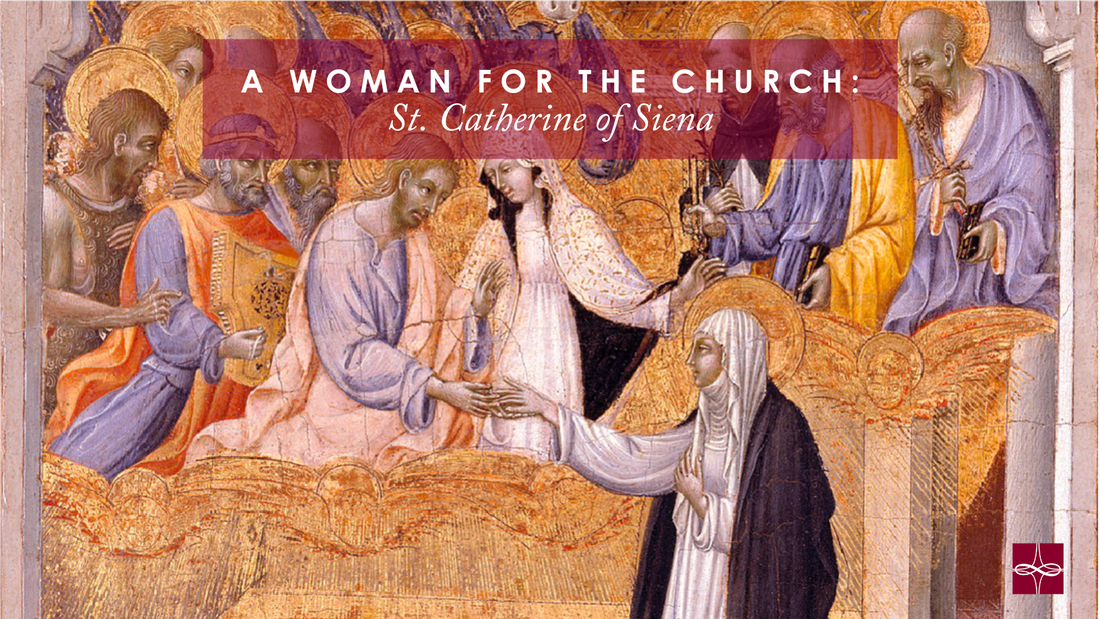


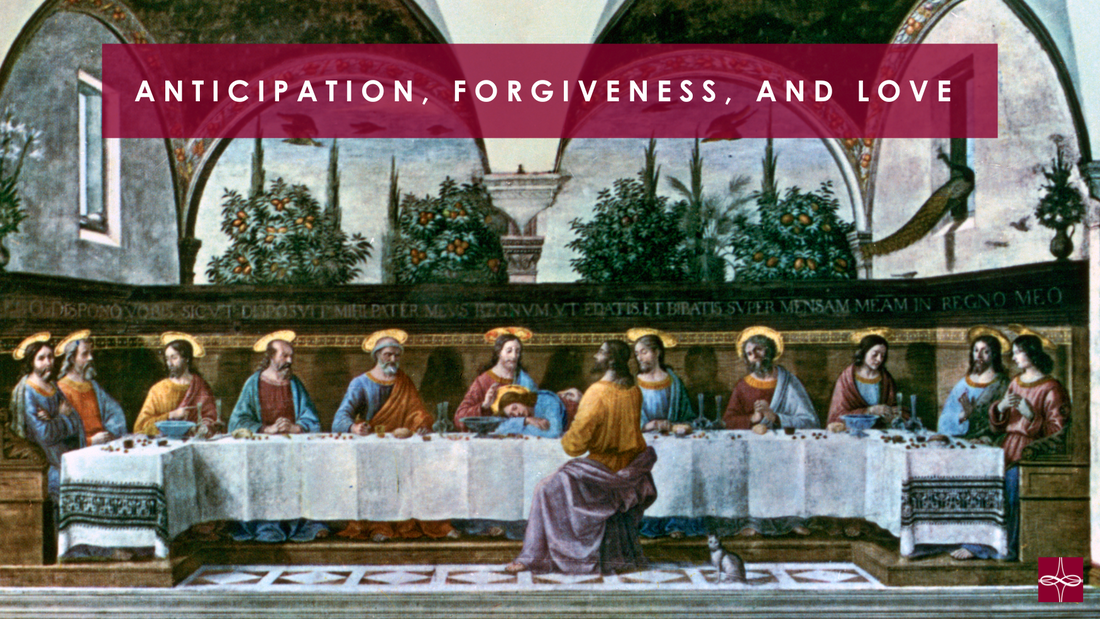



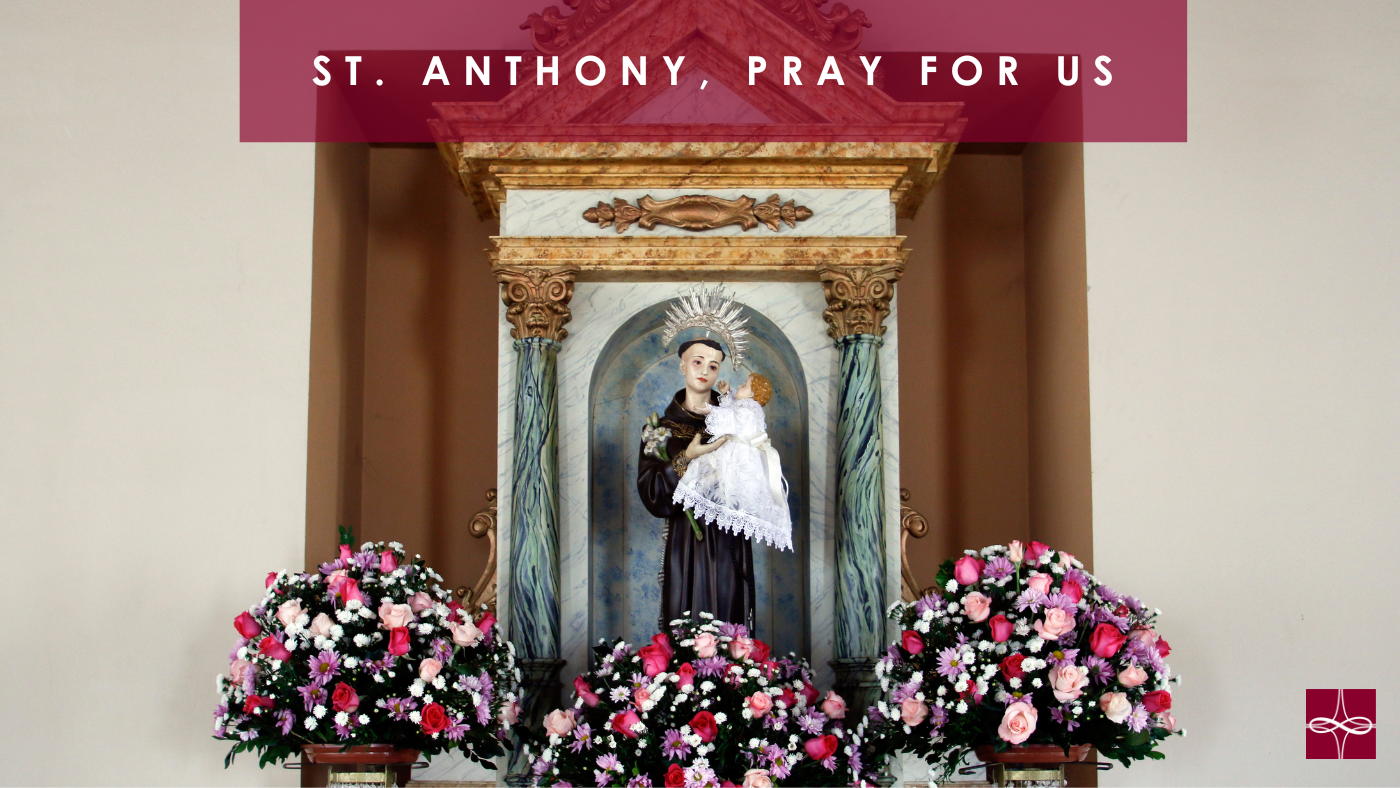


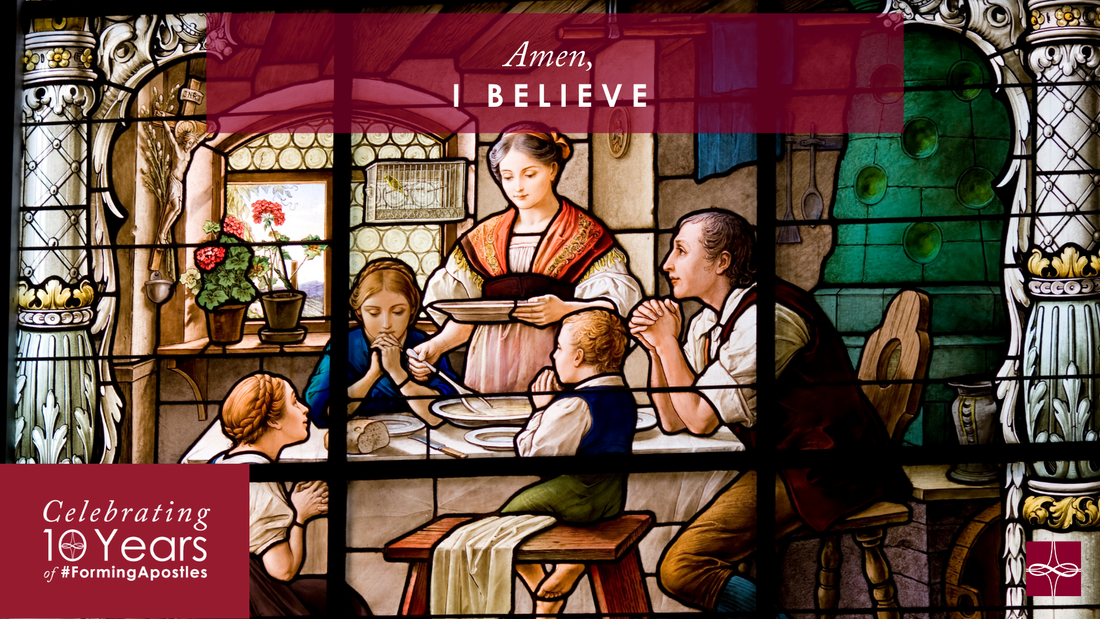

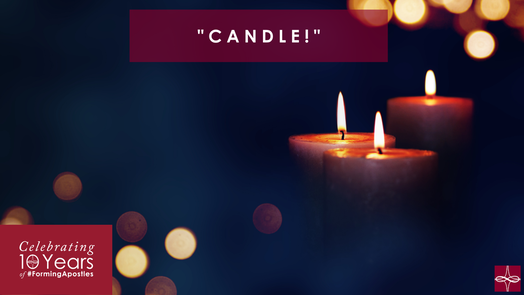

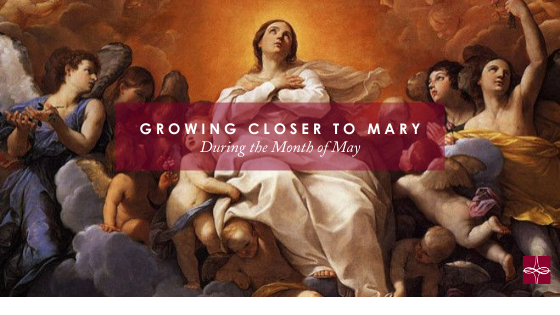

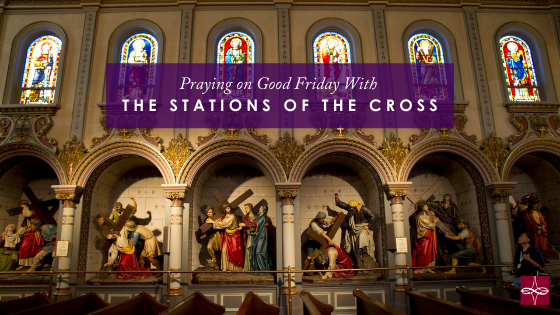
 RSS Feed
RSS Feed